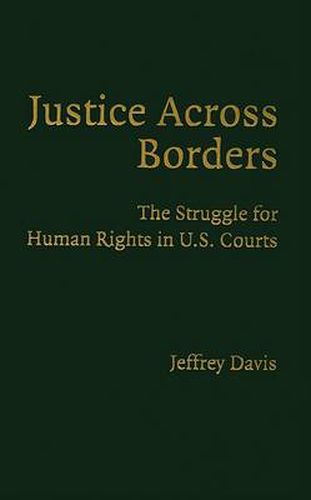Readings Newsletter
Become a Readings Member to make your shopping experience even easier.
Sign in or sign up for free!
You’re not far away from qualifying for FREE standard shipping within Australia
You’ve qualified for FREE standard shipping within Australia
The cart is loading…






This book studies the struggle to enforce international human rights law in federal courts. In 1980, a federal appeals court ruled that a Paraguayan family could sue a Paraguayan official under the Alien Tort Statute - a dormant provision of the 1789 Judiciary Act - for torture committed in Paraguay. Since then, courts have been wrestling with this step toward a universal approach to human rights law. Davis examines attempts by human rights groups to use the law to enforce human rights norms. He explains the separation of powers issues arising when victims sue the United States or when the United States intervenes to urge dismissal of a claim and analyses the controversies arising from attempts to hold foreign nations, foreign officials, and corporations liable under international human rights law. While Davis’s analysis is driven by social science methods, its foundation is the dramatic human story from which these cases arise.
$9.00 standard shipping within Australia
FREE standard shipping within Australia for orders over $100.00
Express & International shipping calculated at checkout
This book studies the struggle to enforce international human rights law in federal courts. In 1980, a federal appeals court ruled that a Paraguayan family could sue a Paraguayan official under the Alien Tort Statute - a dormant provision of the 1789 Judiciary Act - for torture committed in Paraguay. Since then, courts have been wrestling with this step toward a universal approach to human rights law. Davis examines attempts by human rights groups to use the law to enforce human rights norms. He explains the separation of powers issues arising when victims sue the United States or when the United States intervenes to urge dismissal of a claim and analyses the controversies arising from attempts to hold foreign nations, foreign officials, and corporations liable under international human rights law. While Davis’s analysis is driven by social science methods, its foundation is the dramatic human story from which these cases arise.